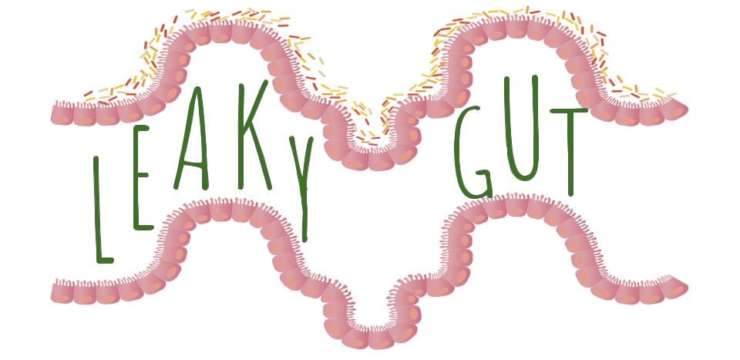Introduction In today’s podcast, Dr. Alex Jimenez, Health Coach Kenna Vaughn, and Sports Dietitian Taylor Lyle discuss what does sport nutrition and a healthy diet…


Introduction In today’s podcast, Dr. Alex Jimenez, Health Coach Kenna Vaughn, and Sports Dietitian Taylor Lyle discuss what does sport nutrition and a healthy diet…

A typical diet consists of consuming three meals: breakfast, lunch, dinner, and snacks in between. However, this is not always the case, depending on individual…

Introduction In today’s podcast, Dr. Alex Jimenez DC, Health Coaches Adriana Caceres and Faith Arciniega, Massage Therapist Amparo Armendáriz-Pérez, and Clinical Nutritionist Ana Paola Rodriguez…

Women’s health is a critical pillar of our public health system. Indeed, the complex female anatomy also enables various conditions that we certainly do not…

Why Take Supplements? When taken correctly and appropriately, supplements are frequently the key to solving many symptoms and other health concerns. As individuals become vitamin…

Chocolate is comfort food. When stressed out, frustrated it makes you feel better, and when things are great, it can make them even better. However,…

Chiropractic medicine specializes in the musculoskeletal system. It treats the whole body because if one area of the body is inflamed, swollen, out of place,…

Improving mitochondrial function can be done through different mechanisms. Indeed, the use of supplements, cold showers, exercise, and even when we ingest our meals directly…

Triathlon training involves running, biking, and swimming. This much fitness training takes a toll on the body. Pulled hamstrings, twisted ankles, and sore heels are…

There are different possible causes of abdominal pain and digestive problems. Sometimes a bulging disc is the cause. A bulging disc that is causing abdominal…

Re-energize from a lack of energy and fatigue with Bio-chiropractic. Millions of individuals struggle to get through the day or night depending on work/school schedules…

Hormones are responsible for many functions throughout the body. The body depends on these levels to be stable and released at the proper time. For…

Eating healthy and spinal health are interconnected. Eating healthier will help to lose weight, and provide a healthier body mass index. This means more muscle…

The nutritional supplementation in the general population contributes to the proper function of physiological and genetic mechanisms. Indeed, vitamins of the B complex are potent…

What is Adrenal Stress/Fatigue?Â
Adrenal fatigue has been applied to individuals who suffer from a group of symptoms. These symptoms include body aches, restless sleep, digestive problems, nervousness, lightheadedness, and overall fatigue. Individuals with these symptoms are recommended to do a diagnostic test to determine their level of adrenal hormones. A test we use is a Stress & Adrenal Hormone Panel from ZRT Laboratories. A sample report is shown below:Â
Â
Natural Ways to Combat Adrenal Stress
Over time, adrenal stress impacts the body by raising cortisol levels and causing fatigue. There are many areas to be considered when dealing with adrenal stress. The first step is to identify the sources of stress. Stress can be caused by exogenous and endogenous factors. An example of exogenous stress could be from grains if one has an intolerance. This causes an inflammatory response on the adrenal axis. Other examples include family, financial, or work. Endogenous stress is typically a side effect of a medication or oxidative stress. Once the main source of stress has been discovered, remove as much as possible.Â
The second crucial factor for proper adrenal function is adequate sleep. Sleep hygiene is often overlooked when in reality, it should be a priority. Below is a page of suggestions on how to improve sleep quality. *include living matrix sleep hygiene sheet*. The human body utilizes the hours we sleep to physically repair. Without a restful full night’s sleep, the body is not able to regenerate itself.Â
Thirdly, reduce the amount of coffee and tea as they interrupt the sleep pattern. Anything with caffeine should be limited and avoided before bed.Â
Maintaining glycemic control is another important factor for adrenal health. By improving cortisol balance, the insulin level will not spike rapidly and drop drastically after meals. To maintain glycemic control, individuals need to eat complex carbohydrates like sweet potatoes. Excess carbohydrates have an adverse effect on blood sugar levels by excessively raising the levels of insulin. This puts a significant amount of stress on the adrenal glands.Â
Exercise is a great component in relieving adrenal fatigue as it oxygenates the body. Regular exercise reduces depression, increases blood flow, normalizes levels of cortisol, insulin, growth hormone, and thyroid. Interval training and resistance training are highly recommended.Â
Finally, eating a well-balanced diet, especially breakfast, will reduce blood sugar spikes. If the body is low on glucose and breakfast is skipped, the body will react by secreting cortisol. Cortisol activates gluconeogenesis to increase sugar levels.Â
Phase AngleÂ
The phase angle is how health care professionals can monitor the integrity of cellular membranes. If the phase angle begins to decline, it has been linked directly to a decline in overall health. Similar to if phase angle increases, overall health is increasing. The integrity of cellular membranes is essential as cell survival depends on solid membranes. When the cellular wall is weak, it can collapse. From here, it is difficult for the body to take up the proper nutrients it needs. Additionally, with a weak cellular membrane, the cell is left with little to no protection from outside invaders. Stress impacts phase angle by causing individuals to release cortisol, be under adrenal stress, gain weight and decrease their overall health.
We monitor a patient’s phase angle with the use of the InBody 770. This advanced machine allows us to not only track the phase angle of our patients but many other areas of their health as well, including but not limited to intracellular and extracellular water.Â
[embedyt] www.youtube.com/watch?v=WwbIsPNUYqs%5B/embedyt%5D
“IT IS IMPORTANT NOT ONLY FOR PHASE ANGLE BUT FOR THE OVERALL REDUCTION OF INFLAMMATION TO REDUCE STRESS. THOSE WHO ARE CONSTANTLY STRESSED AND UNDER ADRENAL FATIGUE ARE MORE SUSCEPTIBLE TO GETTING SICK, AMONGST OTHER DISEASES. IF YOU DO NOT KNOW WHERE TO START, IDENTIFYING STRESS AND STARTING TO EXERCISE IS A GREAT STEP IN THE RIGHT DIRECTION. -KENNA VAUGHN, ACSM-EP, SENIOR HEALTH COACHâ€Â
References:Â
 Yancey JR, Thomas SM. Chronic fatigue syndrome: diagnosis and treatment. Am Fam Physician. 2012 Oct 15;86(8):741-6. PMID: 23062157.Â
inbodyusa.com/products/inbody770/Â
Additional Online Links & Resources (Available 24/7)


Â
Online Appointments or Consultations:  https://bit.ly/Book-Online-Appointment


Â
Online Physical Injury / Accident Intake Form: bit.ly/Fill-Out-Your-Online-History


Â
Online Functional Medicine Assessment: bit.ly/functionmed
Â
Â
Â
Disclaimer
Â
The information herein is not intended to replace a one-on-one relationship with a qualified health care professional, licensed physician, and is not medical advice. We encourage you to make your own health care decisions based on your research and partnership with a qualified health care professional. Our information scope is limited to chiropractic, musculoskeletal, physical medicines, wellness, sensitive health issues, functional medicine articles, topics, and discussions. We provide and present clinical collaboration with specialists from a wide array of disciplines. Each specialist is governed by their professional scope of practice and their jurisdiction of licensure. We use functional health & wellness protocols to treat and support care for the musculoskeletal system’s injuries or disorders. Our videos, posts, topics, subjects, and insights cover clinical matters, issues, and topics that relate and support, directly or indirectly, our clinical scope of practice.* Our office has made a reasonable attempt to provide supportive citations and has identified the relevant research study or studies supporting our posts. We provide copies of supporting research studies available to regulatory boards and the public upon request. We understand that we cover matters that require an additional explanation of how it may assist in a particular care plan or treatment protocol; therefore, to further discuss the subject matter above, please feel free to ask Dr. Alex Jimenez or contact us at 915-850-0900.  Read More…
Dr. Alex Jimenez DC, MSACP, CCST, IFMCP*, CIFM*, CTG*
email: coach@elpasofunctionalmedicine.com
phone: 915-850-0900
Licensed in Texas & New Mexico

Alzheimer’s disease is one that impacts many lives. There are multiple factors that go into the diagnosis of Alzheimer’s, some people’s diet, environment, genetics, head trauma and more. The classic symptoms include loss of memory, memory issues that begin to disrupt everyday life (such as where you keep your coffee mugs), difficulty completing familiar tasks in the workplace or home, confusion with time or place, and trouble understanding images.Â
Normal Aging vs Alzheimer’sÂ
With normal aging, we see brain atrophy, some neurotransmitter loss, and oxidative damage. These changes occur but they do not interfere with daily tasks or quality of life. To determine the difference, we can perform a simple test in the office that consists of a few questions. The score will determine if the aging of the brain is within normal limits.Â
Synapse LossÂ
As mentioned above, head trauma can lead to Alzheimer’s as it increases synapse loss. Things that contribute to head trauma include physical trauma, stroke, hypertension, and diabetes. Additionally, high cholesterol, high homocysteine, low exercise, and specific genes.Â
Genes
Although we are unable to change the genes we were born with, we can alter their expression. There are steps that we can take to alter these genes to express in a positive manner rather than negative. This can help slow down the progression or onset of Alzheimer’s. The genes we specifically look at in reference to Alzheimer’s are those that impact lipid metabolism, inflammation, and are dopaminergic and neurotrophic. These include:
CRP
IL-6Â
TNFAÂ
COMTÂ
BDNFÂ
We have the ability to perform genetic testing through DNA Life to assess your genes and your susceptibility. DNA Mind provides an identification of the level of impact of any genetic variant. It also provides us with a broken down explanation of the genes and their specific impact on the biochemical area and mental health. Additionally, this test not only reports on Alzheimer’s disease but also dementia, cognitive decline, addictive behavior, risk-taking behavior, and mood disorders. A sample report can be seen below:Â
Â
Lifestyle : InBodyÂ
As previously mentioned, we see a direct link between lack of exercise, poor nutrition, and Alzheimer’s disease. We are able to create personalized nutrition plans for your body as well as determine other predisposing factors with the help of the InBody 770 system. This advanced machine provides a great deal of information for us regarding the patient. We track patients Anthropometric measurements in order to determine their lean muscle mass, fat density, visceral fat (fat surrounding the organs- a key indicator of disease risk), water percentage, and height and weight. We measure our patients every 8 weeks and keep a detailed record. These reports are great indicators for health and also assess inflammation and edema. There is more information regarding the InBody below.Â
[embedyt] www.youtube.com/watch?v=N3_BEhgJCGc%5B/embedyt%5D
InBody_E_Book.pdf
GENETIC TESTING IS AVAILABLE NOW AND PROVIDES US WITH MORE INFORMATION THAN EVER BEFORE. WITH THIS INFORMATION AND THIS TECHNOLOGY, WE ARE ABLE TO CREATE PREVENTABLE PLANS GEARED TOWARDS YOU. I HIGHLY RECOMMEND GETTING TO KNOW AND UNDERSTAND YOUR GENES. -KENNA VAUGHN, SENIOR HEALTH COACHÂ

The link between inflammation and many diseases was made less than 15 years ago. With that being said, there is still so much we are constantly finding out about the connection. Inflammation and disease can be thought of as a circle, the relationship is complex and goes both ways. Inflammation is not always felt by the patient. Majority of inflammation happens in the gut and digestive tract. This leads to something we call “Leaky Gut†or Intestinal Permeability.Â
Contributing factors to systemic inflammation include:
SmokingÂ
Environmental pollutantsÂ
Overweight
Sedentary lifestyleÂ
Stress
Diet
It is important to keep in mind that not all inflammation is bad. In fact, we need inflammation. Inflammation is a natural and normal response within the body to help repair damaged areas. However, when the inflammation gets excessive, we begin to see problems arise. The first steps we take is to eliminate and reduce the contributing factors of systemic inflammation. Smoking includes second hand smoke as well environmental pollutants. These create excessive inflammation in the body and we are unaware of what we are truly breathing in. A sedentary lifestyle and being overweight typically go hand in hand. Adipose tissue or fat cells produce inflammatory chemicals at a faster rate than lean muscle mass. When we live a sedentary lifestyle and begin to carry around added weight, we are adding fuel to the inflammatory fire. Lastly, stress can add unnecessary inflammation to the body by causing cortisol to release into the adrenal pathways. Â
Nutrition
Anti-Inflammatory diets are constantly circling around. There have been studies with benefits linking to diets that include healthy fats, low glycemic, wheat-free, Mediterranean, ph-balanced, and antioxidants. One thing that all healthcare providers seem to have in common is agreeing that nutrition is linked to inflammation and pro-inflammatory foods include trans fats, SFA, ARA, and high glycemic loads.Â
In order for a patient to be on a true anti-inflammatory diet that helps recover their gut and reduce inflammation, lab work is needed. The reason is that one food that is anti-inflammatory in one individual, might be causing major irritation and inflammation in another.Â
LabsÂ
To start off, we run a Food Sensitivity Test from Vibrant America. This tests to make sure they do not have any specific IgG reactions to foods consumed, like wheat, vegetables, fruits, and more.